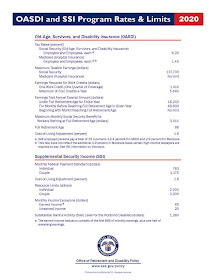From a
San Antonio television station:
Texas passed laws this year to protect patients from surprise medical
bills. But some hospitals can still hit you with huge charges, take
money from your paycheck, even confiscate your tax refund. News 4
Trouble Shooter Jaie Avila shows us how it's devastating some local
families.
Government-owned hospitals like Brooke Army Medical
Center can save your life in an emergency. But they are not part of any
insurance network and will not negotiate charges with them. If your
insurance doesn't pay the bill in-full the government goes after you.
Back
in 2015 Frank Hooker suffered a fall that fractured his skull and
caused bleeding in his brain. He was flown to Brooke Army Medical Center
for several days of treatment.
“To this day I don't know why the bill wasn't paid because he had really good insurance," said Frank’s daughter Jana Gentry. ...
Frank worked for the City of Devine for decades, but now suffers from
Alzheimer's and his wife recently passed away. His daughter Jana says
she had no idea there was an unpaid hospital bill for $60,000 until
January of this year.
“I got a letter from the Department of the
Treasury saying if it wasn't paid in-full they were going to take it out
of his social security," Jana recalls.
And that's what they did....
So, we contacted Humana, and BAMC, on Frank's behalf.
Brooke Army Medical Center says after hearing from us they immediately called Jana.
“We
provided a copy of the bill to her for her records. As a courtesy to
Ms. Gentry, we rebilled her father's insurance carrier," BAMC officials
said in an email.
Humana also told us it would look into Frank's
bill, adding: "We work diligently and with our members to research and
resolve their personal situations."
A few days went by and then, Humana called Frank's daughter Jana with fantastic news: it is covering the hospital bill. ...
We've heard from numerous other families who are struggling to pay off
large bills because their insurance companies will not cover charges
from BAMC. We've asked to interview someone with Brooke Army Medical
Center and the Treasury Department about their collection methods, We
hope to bring that to you soon.
No, I don't know why why Brooke Army Medical Center would have been treating a civilian. (I've actually had a client who had a heart attack while visiting a relative who was an inpatient at a VA hospital. The visitor was admitted to the VA hospital even though he wasn't a vet. That's not the situation here, however. I remember that there was an insurance problem in that case but it was only because the situation came up so seldom that the VA hospital had trouble producing a bill.) I do know that if this had been a hospital owned by anyone other than the federal government that they could not have taken his Social Security check.








